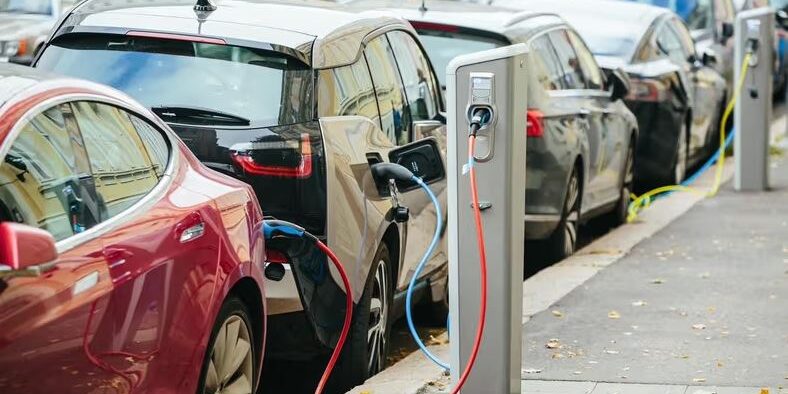
The South African government has revealed that the country’s automotive industry will likely produce its first electronic vehicles (EVs) in 2026.
This development was announced by the trade minister while outlining plans for the country’s green transport transition on Monday, Reuters reported.
One of the pillars supporting South Africa’s Just Energy Transition (JET) plan for building a low-carbon and climate-resilient economy is the electrification of transport.
According to the JET plan, a 128.1 billion rand ($6.84 billion) investment will be required between 2023 and 2027 to enable the transport sector to significantly contribute to South Africa’s decarbonization goals.
South Africa stands as the foremost automotive manufacturing hub on the African continent, boasting the presence of renowned global brands including Toyota, Isuzu, Volkswagen, and Mercedes, among others.
Also, the country is intricately connected to the global supply chain, sourcing components from various corners of the world and exporting the finished consumer product to over 150 countries worldwide.
For instance, Mercedes-Benz, the luxury car manufacturer currently ships 90% of its entire South African production to European market which plans to cease the sale of new petrol and diesel vehicles by 2035.
For a nation that exports three-quarters of its vehicle production, this development could lead to a decline in the global competitiveness of the country’s automotive industry.
Hence, industry stakeholders have stressed the need for South Africa to implement rapid regulatory changes that promote the adoption of electric vehicles (EVs).
“We’re already producing hybrids but we anticipate that the first electric vehicles are likely to be produced already by 2026,” Minister of Trade, Industry and Competition, Ebrahim Patel told journalists.
Ford’s South African division earlier announced its plan to invest 5.2 billion rand ($281 million) in manufacturing a hybrid vehicle within the country.
The minister mentioned that based on discussions his department was having with the automakers, the first batch of EVs will be limited.
However, a growth phase is expected between 2026 and 2030, with only one manufacturer anticipating moving into battery electric vehicle production after 2030, he added without naming any brands.
The government, in a comprehensive 68-page EV plan, delineated measures to facilitate the transition to electric vehicles (EVs) including government incentives, a temporary reduction on import duties for batteries in vehicles produced and sold in the domestic market, and the commercialisation of green hydrogen production as a source of sustainable fuel.
The country will also reform network industries, including freight rail and ports and implement energy reforms.
However, its power crisis poses one of the risks as the country’s state-power utility Eskom struggles to keep the lights on.





